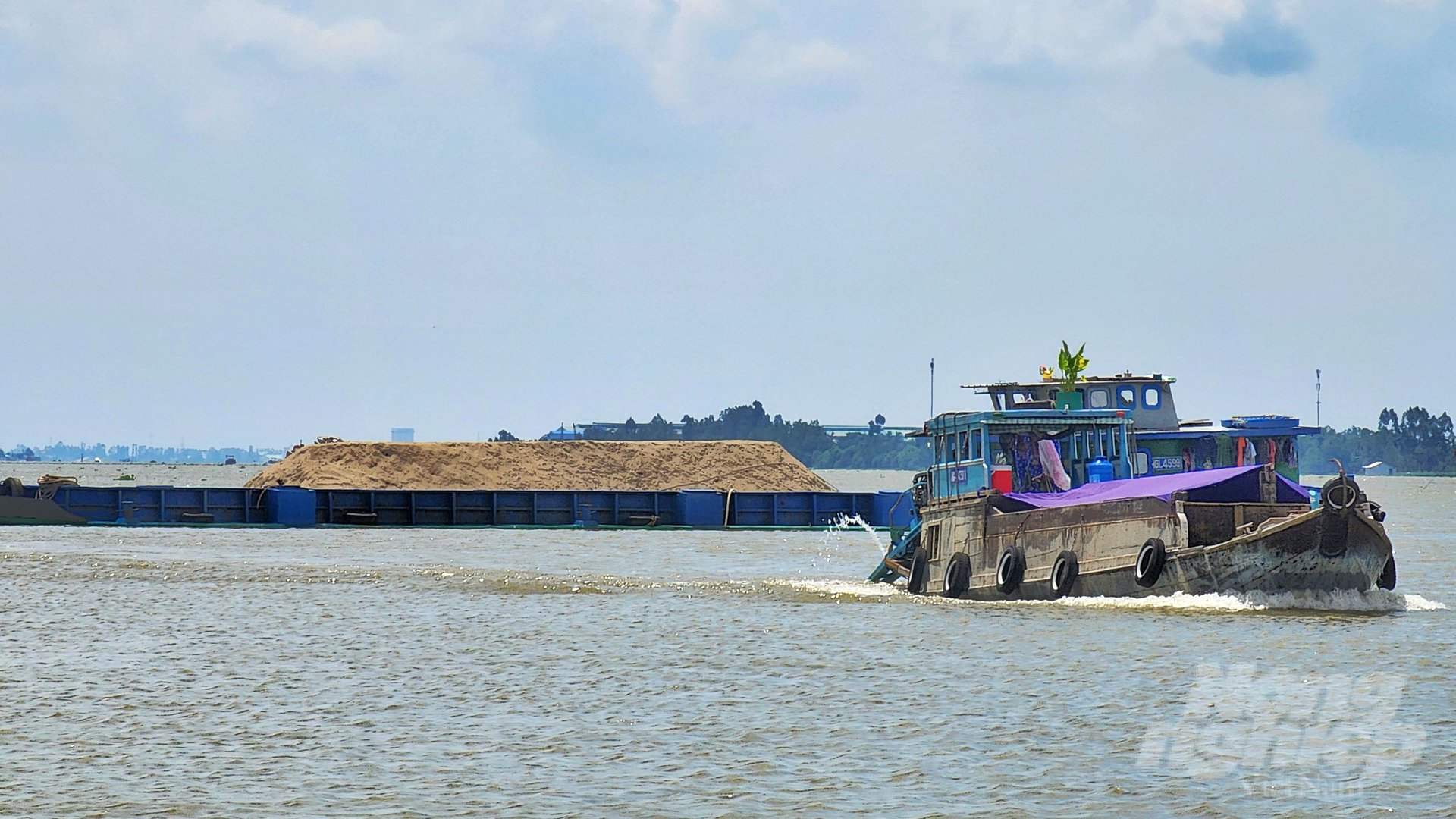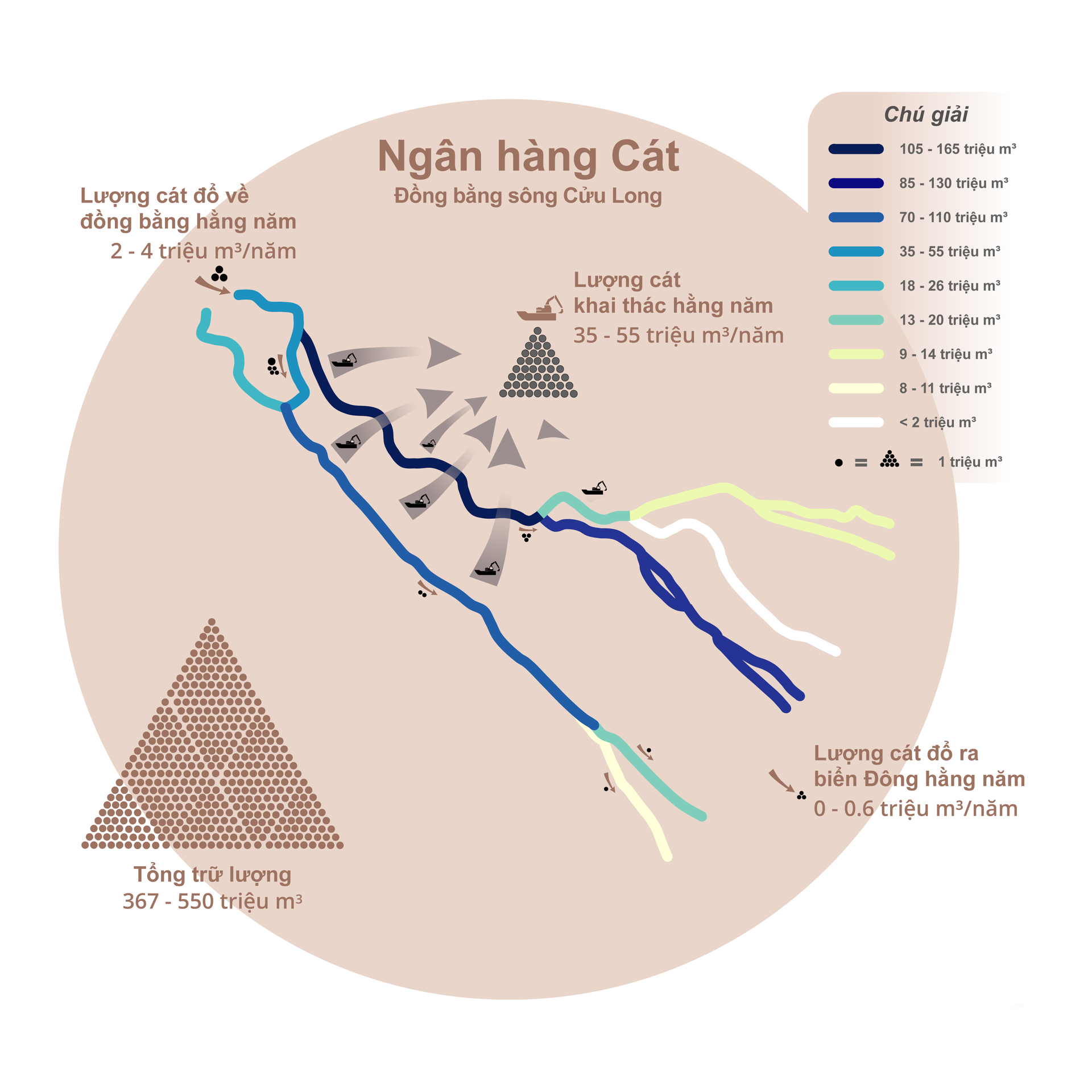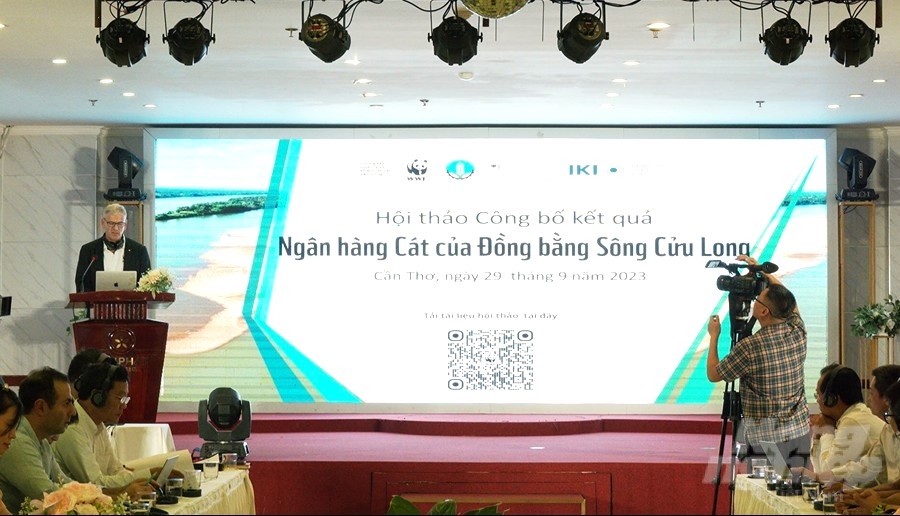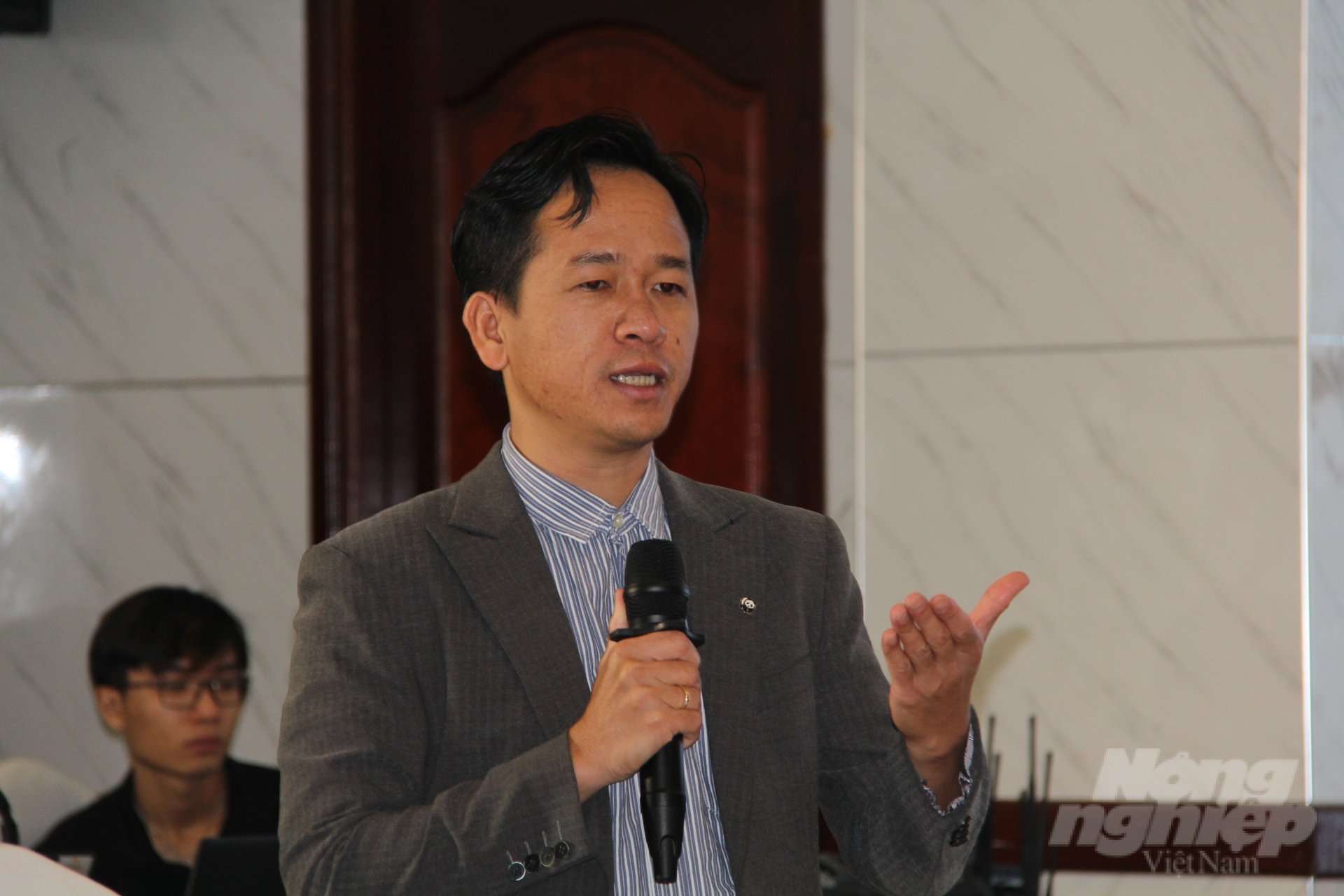November 22, 2025 | 21:27 GMT +7
November 22, 2025 | 21:27 GMT +7
Hotline: 0913.378.918
November 22, 2025 | 21:27 GMT +7
Hotline: 0913.378.918
Mekong Delta's strategic development is threatened by salinity, depression, erosion, water quality, and biodiversity loss.
WWF Vietnam specialists disclosed recent research excavations demonstrating that a lack of sedimentary rock is the primary cause of river bed and bank erosions, coastal erosion, and salinity. The situations are the result of hydroelectric development and sand extraction in the upper Mekong basin.

Research excavations demonstrating that a lack of sedimentary rock is the primary cause of river bed and bank erosions, coastal erosion, and salinity. Photo: Kim Anh.
Typically, by the end of 2022, the entire Mekong Delta will have 596 riverbank landslides measuring nearly 583 kilometers in length and 48 coastal landslides measuring 221.7 kilometers in length. Up to 99 of these points are classified as especially hazardous. This situation has a direct impact on the socioeconomic status of millions of Mekong Delta residents.
The construction of a sand bank for the Mekong Delta has been concluded after nearly twenty months of research, surveying, measuring, data analysis, and consultation with pertinent parties. This is the world's first research endeavor to encompass the entire delta.
Specifically, WWF Vietnam's research team conducted measurements along 550 kilometers of the Tien and Hau rivers and collected sediment samples from the riverbed along with other exploration data.

Sand bank for the Mekong Delta. Photo: WWF Vietnam.
Recorded results indicate that the total sand reserves of the Mekong Delta are estimated at about 367 - 550 million m3 (primarily based on the unfixed sand layer). This is the quantity of sediment that has accumulated over hundreds of years and is crucial to the stability of the delta.
The 2022 survey reveals that between 0 and 0.6 million m3 of sand is deposited annually in coastal areas. Meanwhile, the quantity of sand flowing into the delta from upstream has decreased to 2 to 4 million m3/year due to hydroelectric structures capturing most of it upstream. This is significantly less than the present sand exploitation rate of 35 to 55 million m3/year (equivalent to nearly 50 percent of the total sediment flowing into the Mekong Delta).
Research indicates that, if the present rate of exploitation is maintained, the supply of sand from upstream to the delta will be limited. In the next ten years, the Mekong Delta's sand reserves will be depleted, which will have a severe impact on the delta's morphological stability and resilience.
Moreover, based on existing salinity forecasts, the joint venture expert group Deltares, a consulting unit on building a sandbank for the Mekong Delta, warns that the loss of 500 million cubic meters of sediment from the river system of the Mekong Delta could increase the number of areas affected by saline intrusion in the region by 10 to 15 percent.

On September 29, WWF Vietnam coordinated with partners to announce the results of building a sand bank in Can Tho City. Photo: Kim Anh.
According to Mr. Ha Huy Anh, National Manager of the Sustainable Sand Management Project in the Mekong Delta for WWF Vietnam, this is the first time that Vietnam has sand balance data for the entire Mekong Delta. Although the above measurements were conducted for only one year, they provide a limited overview of the Mekong Delta's current sediment situation. From there, support the authorities in planning policies for sustainable sand mining management in the Mekong Delta, and develop a plan to reduce the Mekong Delta's vulnerability to climate change and human impacts.
Mr. Marc Goichot, Freshwater Program Manager, WWF Asia-Pacific, recommends, based on the results of building cross-border and inter-provincial sandbanks for the Mekong Delta, the establishment of a centralized management plan on a regional scale, as opposed to the current system of management and licensing by each province. In addition, it encourages the research and development of sustainable substitute materials.

Mr. Ha Huy Anh, National Manager of the Sustainable Sand Management Project in the Mekong Delta for WWF Vietnam, this is the first time that Vietnam has sand balance data for the entire Mekong Delta. Photo: Kim Anh.
WWF Vietnam will share data, results, and recommendations with relevant collaborators in the near future. At the same time, search for opportunities to expand sandbanks from the delta scale to the basin level, for comprehensive sand management. Moreover, it is necessary to develop environmentally favorable and cost-effective alternatives to river sand with larger reserves and volumes than the current period.
Building a Sand Bank for the Mekong Delta is part of the Project "Mitigating climate change impacts and preventing natural disasters through public-private sector participation in sustainable sand mining in the Mekong Delta." WWF Vietnam, in collaboration with the Department of Dyke Management and Natural Disaster Prevention (MARD), has been implementing the project since 2019, with completion anticipated by mid-2024.
The initiative is funded by the International Climate Initiative Fund of the German Government through WWF Germany, contributing to the preservation of vital ecological functions and the minimization of socioeconomic hazards resulting from climate change in the Mekong Delta.
Sandbank research results will continue to be used to develop a plan to maintain stable river morphology in the Mekong Delta, which will include recommendations and guidance on sustainable and integrated sand and gravel exploitation, as well as the integration of policies on natural disaster prevention and sustainable development in the Mekong Delta.
Translated by Linh Linh

(VAN) Official Telegram No. 226/CD-TTg, issued on November 21, 2025, mandates enhanced management and utilization of national reserves to support flood response and relief efforts in the Central Region.

(VAN) The Politburo has demanded a high concentration of efforts on urgent relief tasks, ensuring absolute prevention of hunger, cold, and shortages of clean water or medicine among the population.

(VAN) Water resources during the 2025–2026 dry season in the Mekong River Basin basically meet domestic use and production needs, but localized shortages may still occur due to saltwater intrusion.

(VAN) Vietnam and Japan have committed to deepening cooperation on projects under the Joint Crediting Mechanism (JCM), improving waste management, and advancing the circular economy.

(VAN) Digital transformation is becoming a core driver of proactive, precise, and safer management of dams and reservoirs nationwide.

(VAN) This assistance supports people who temporarily relocate or evacuate, as well as communities affected by major storms from late September to now.

(VAN) Viet Nam will host the 8th ASEAN Heritage Parks Conference, bringing together over 320 delegates and reaffirming its role in regional nature conservation.